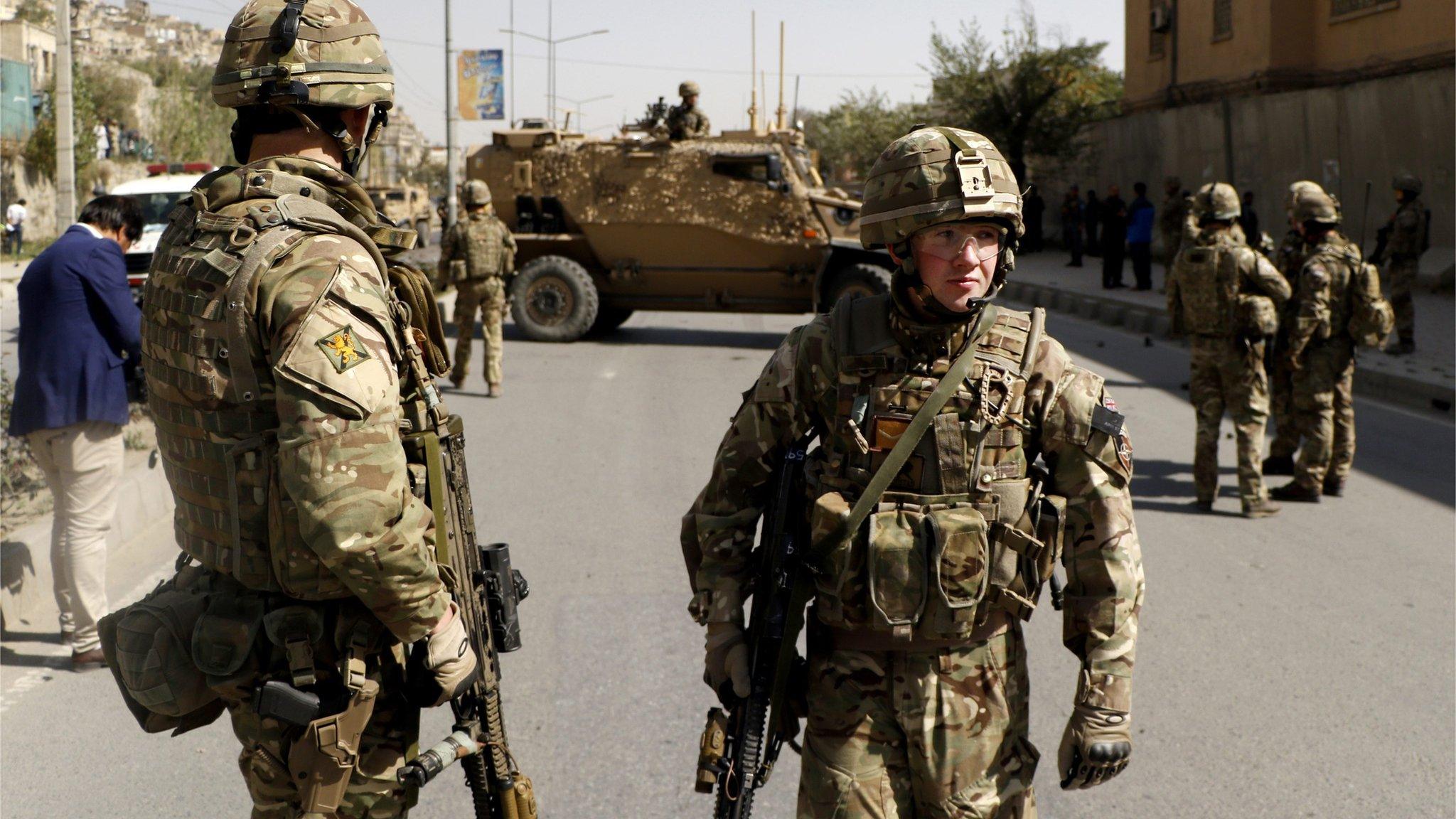The Afghan interpreters seeking asylum in the UK
- Published
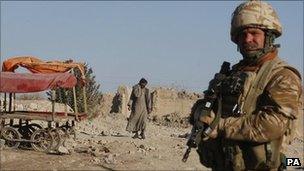
Some Afghan interpreters are worried they will be killed after British forces leave Afghanistan
Afghan interpreters who risked their lives working for British forces in Afghanistan are taking legal action to persuade the government to give them assistance to remain in the UK, and shield them from intimidation by the Taliban.
They are asking for a package similar to that given to Iraqi interpreters, in a case whose outcome is becoming increasingly urgent as Nato's withdrawal of combat troops from Afghanistan gathers pace.
An announcement is expected on Wednesday about how fast British forces will withdraw from the country.
Lawyers from Leigh Day & Co have written to the foreign secretary and the defence secretary asking for the scheme in operation in Iraq to be extended to Afghanistan.
'Legal limbo'
Eddie is one of those who would have much to gain if the case succeeds.
He has stared bleakly at the walls of his room in Glasgow for nine months, waiting to hear whether his case for asylum in the UK has been accepted. He doesn't want to use his real name because of threats against himself and his family in Kabul.
The fluent English-speaker has spent the last eight years helping British and American troops speak to their Afghan allies, risking his life on patrol in Helmand, and working side by side with British soldiers.
But at the age of 27, Eddie is stuck in a legal limbo, waiting for news from the Home Office.
His solicitor, Andrew Morris of Hine Solicitors, makes clear that Eddie is not part of the legal action, though he could benefit from it if it succeeds.
He emphasises that all his client wants is an answer: "Eddie does not wish to sue the British Government that he has served. He has been a loyal servant to the British Forces for a significant number of years and has been waiting for his asylum application to be granted since March this year.
"There is no good reason for the delay when there is clear evidence that he has put his life on the line for British soldiers. Other interpreters have had their application granted within weeks"
Other Afghan interpreters such as Mohammed, one of those behind the legal action, have been granted asylum after a lengthy battle. But Eddie has heard nothing for months, and this bright, once energetic young man is suffering from depression.
"The job I did was a risk, especially in southern Afghanistan, but I was proud to do it," he explains.
He saw more than 25 of his colleagues lose their lives amid the violence, but believed that he was serving his country by working with British troops. At first, he brushed off the Taliban threats. But then came more threats, early in 2012.
"This time, they came from the Afghan government and high-ranking Afghan soldiers, as well as the Taliban. When they started to threaten my family, I had to give up," he tells me.
"I loved my job and staying in Afghanistan, my country. I loved serving it. But I had to leave for my family's sake."
'Spies must be beheaded'
So why do so many Afghan interpreters fear that they are or will be a target for assassination?
"The Afghan government were not happy with the way we did things for British forces," says Eddie.
"They think that we are spies, and according to Afghan law and Islamic rules, a spy must be beheaded. That's the reason they hate all interpreters, not just me. And the Taliban see us as traitors."
But now he feels as though he is being penalised by British officials.
"I served British forces honestly and loyally, and this waiting feels like a kind of punishment. The Home Office just need to let me know if I deserve to stay alive. Otherwise, they should send me back to Afghanistan. There, I may suffer physical torture, but this is mental torture."
Eddie lives on £5 a day, money he hates taking as he would rather be allowed to work, as he has done from the age of 16.
The UK does not offer a formalised package for its Afghan staff, even though Iraqi interpreters were finally given assistance after it became clear some risked being killed as a result of their work.
Eddie insists the Afghans' fears are genuine.
"The other allied forces in Afghanistan - the US, Canada, Australia, New Zealand and Germany - know their interpreters will not survive after 2014, so they are helping them," he explains.
Eddie's prediction is that many will be killed once the protection of western forces is removed, paving the way for scores to be settled.
"Just a few months ago, two interpreters were killed. It's going to get worse," he says.
'Incredible bravery'
Iraqi interpreters were offered a one-off package of financial help, as well as exceptional leave to enter the UK and the opportunity to resettle here.
The three Afghans bringing the case claim their situation is no different to that of the Iraqis.
One Afghan interpreter, Ahmadullah, lost his father and two cousins in an assassination he says was directly linked to his work for the UK.
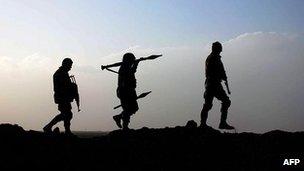
The Foreign Office said those who risk their lives for the UK will "not be abandoned"
"These men have shown incredible bravery in assisting British forces," says Rosa Curling from Leigh Day & Co, who represents the men.
"It is only right that the country should not now leave these men exposed to the threats and very real dangers posed by the Taliban to both themselves and their families. We believe that the fact there is no comparable scheme with the one set up in Iraq is illegal, and we have asked for the government to rectify this.
"If we do not receive an adequate response we will take this to judicial review proceedings."
A statement from the Foreign Office said: "People who have put their life on the line for the United Kingdom will not be abandoned.
"Locally engaged Afghan staff working for our armed forces and civilian missions in Afghanistan make an invaluable contribution to the UK's efforts to help support the spread of security, stability and development in their country.
"We take our responsibility for all members of staff very seriously and have put in place measures to reduce the risks they face… We follow an agreed cross-government policy for considering cases of intimidation or injury on a case by case basis. The policy ensures that we take into account the individual circumstances of each case and allows us to decide a proportionate response. "
For Eddie, the response cannot come soon enough. The young Afghan is convinced that gaining asylum in the country he served could mean the difference between life and death.
- Published19 December 2012

- Published24 October 2012

- Published2 October 2012
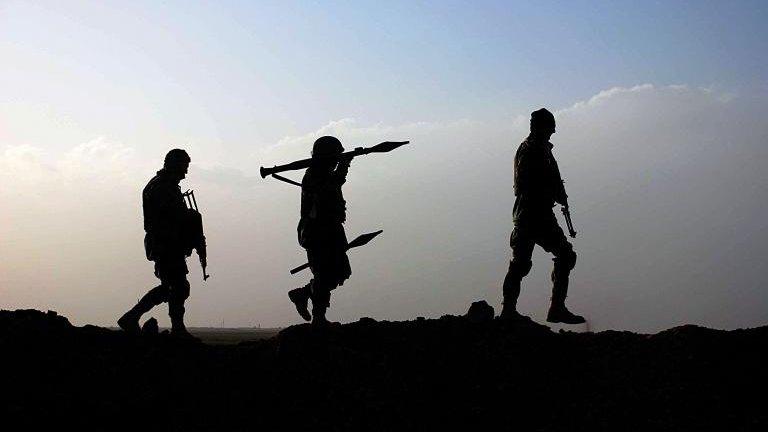
- Published2 August 2011
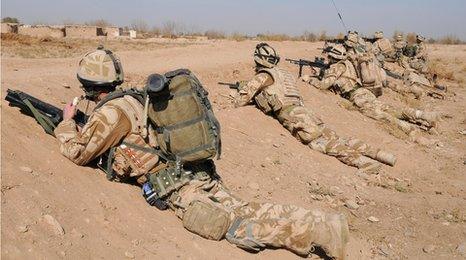
- Published15 October 2015
